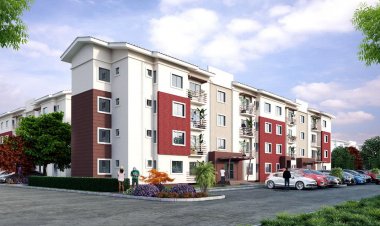5 Factors Influencing Low Uptake of Mortgage Loans in Kenya
Despite the numerous benefits that mortgage loans offer, such as homeownership and long-term investment, there is still a low uptake of mortgage loans in Kenya.

In Kenya, the number of individuals opting for mortgage loans remains significantly low compared to other countries with well-established mortgage markets. Despite the numerous benefits that mortgage loans offer, such as homeownership and long-term investment, this trend raises questions about the underlying factors influencing the low uptake of mortgage loans in Kenya. An analysis of factors contributing to the limited popularity of mortgage loans in the country revealed the following as influences:
1. High Interest Rates:
One of the primary reasons for the low demand for mortgage loans in Kenya is the prevailing high-interest rates. Historically, mortgage rates in the country have been relatively high compared to other nations. The high cost of borrowing discourages potential homeowners from taking on mortgage loans, as the repayment burden becomes considerably heavier. Additionally, the uncertainty surrounding interest rate fluctuations further deters individuals from committing to long-term mortgage obligations.
2. Affordability and Income Levels:
Another significant barrier to mortgage loan uptake in Kenya is the affordability of housing. Many Kenyans struggle with insufficient income levels and limited access to affordable housing options. The high cost of housing relative to income makes it difficult for individuals to save for down payments and qualify for mortgage loans. Consequently, a significant portion of the population is excluded from the formal mortgage market, resulting in limited uptake.
3. Lack of Long-Term Financing Options:
The absence of long-term financing options poses a significant challenge to the mortgage market in Kenya. Most financial institutions in the country primarily focus on short-term lending, which limits the availability of mortgage products. This scarcity of long-term financing options makes it challenging for potential homeowners to secure mortgage loans with favorable repayment terms and conditions. The lack of flexibility and adaptability in mortgage products further discourages individuals from exploring this avenue for homeownership.
4. Informal Housing Market:
A considerable portion of the Kenyan population resides in informal settlements or owns informal housing. The informal housing market is characterized by the absence of property titles, making it difficult for individuals to access formal mortgage financing. Without proper collateral, financial institutions are reluctant to provide mortgage loans, leaving a significant portion of the population excluded from the formal mortgage market.
5. Limited Awareness and Education:
The lack of adequate awareness and education about mortgage loans is another factor contributing to their low uptake in Kenya. Many individuals may not fully understand the benefits and processes involved in obtaining a mortgage loan. This lack of awareness leads to misconceptions and mistrust surrounding mortgage products. Increased efforts are needed to educate the public about the advantages of mortgage loans, the available options, and the steps involved in the application process.
Several factors contribute to the limited popularity of mortgage loans in Kenya. High-interest rates, unaffordable housing, limited long-term financing options, the prevalence of informal housing, and a lack of awareness and education all play a significant role in inhibiting the uptake of mortgage loans. Addressing these challenges requires a multi-faceted approach involving policy reforms, interest rate adjustments, the creation of affordable housing options, and extensive financial literacy campaigns. By tackling these barriers, it is possible to stimulate the mortgage market in Kenya and provide more individuals with the opportunity to achieve homeownership and long-term financial stability.
If you have a real estate press release or any other information that you would like featured on African Real Estate Blog Post do reach out to us via email at [email protected]

































